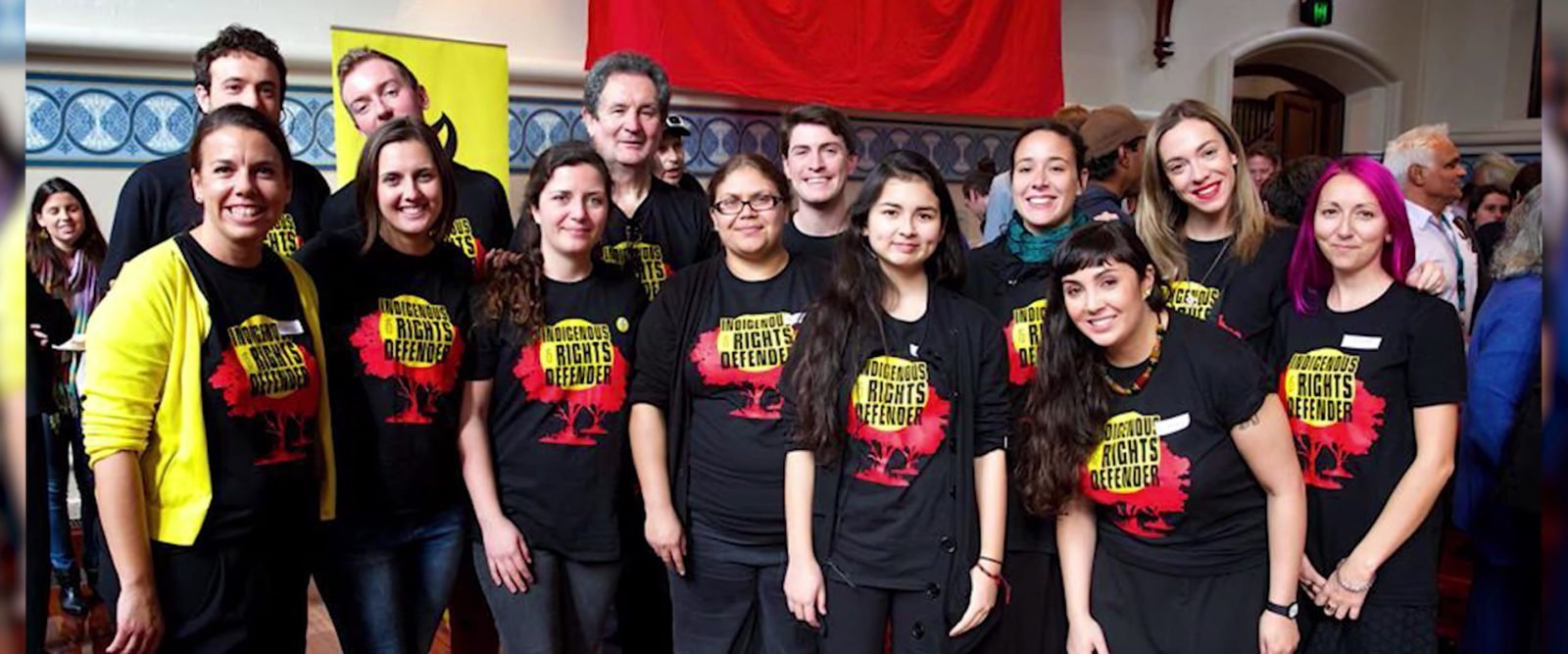‘Reconciliation is everyone working together for the same cause, and we’ve still got some work to do on this.’

As part of our National Reconciliation Week (27 May to 3 June) activities this year I am pleased to announce the launch of Amnesty International’s 2017-2020 Stretch Reconciliation Action Plan (RAP). To keep our action groups, volunteers and supporters up to date on all Reconciliation Action Plan activities and resources, we are also launching our quarterly RAP bulletin.
A RAP is an organisational plan of action which focuses on relationships, respect and opportunities, creating social change and economic opportunities for Aboriginal and Torres Strait Islander peoples, communities and organisations.
This is our third and most comprehensive RAP and our staff, board, activists and supporters all have responsibilities in helping us meet our goals, which include:
- publishing a quarterly RAP bulletin to inform staff and supporters of achievements, upcoming activities and reconciliation related news
- encouraging all board and branch members, staff, activists and volunteers to participate in National Reconciliation and NAIDOC Week activities
- contributing to reports for key international human rights bodies and visits to Australia by relevant Special Rapporteurs
- providing Amnesty staff, activists, supporters and external stakeholders with access to cultural competency training, and
- increasing the number of Aboriginal and Torres Strait Islander staff.
National Reconciliation Week 2017 marks two significant events in Australia’s history.
Saturday 27 May 2017 will be the 50th anniversary of the 1967 Referendum in which over 90 per cent of Australians voted for a better and more fair country for Aboriginal and Torres Strait Islander peoples. The amendments enabled the Commonwealth Government to start officially counting Aboriginal and Torres Strait Islander peoples in the census, and gave a power to create specific laws for Aboriginal and Torres Strait Islander peoples by removing the words ‘other than the aboriginal people’ from the race power in section 51(xxvi) of the Constitution.
Saturday 3 June 2017 is the 25th anniversary of the Mabo decision when the High Court of Australia overturned the legal fiction of ‘terra nullius’ and recognised that Aboriginal and Torres Strait Islander peoples have rights and connection to the lands and seas that make up Australia.
These two events were significant steps towards improving the situation for Aboriginal and Torres Strait Islander peoples, however we still have a long way to go to in reconciling the past and addressing inequalities. This past is often misrepresented and sugar coated, meaning the violence, dispossession, alienation and paternalism enforced on Aboriginal and Torres Strait Islander peoples over a sustained period is often overlooked. Racism and inequality still exist in Australia and effects relationships between non-Indigenous and Aboriginal and Torres Strait Islander peoples, impacting upon the lived economic and social experience of this nation’s First Peoples.
Generations of Aboriginal and Torres Strait Islander peoples and communities have fought for meaningful change, for self-determination and for equality. Over my time with Amnesty International I have had the privilege of working alongside and learning from including Elders and leaders in the Aboriginal and Torres Strait Islander communities; leaders like Rosalie Kunoth-Monks from Utopia, Kirstie Parker, CEO National Centre for Indigenous Excellence, Randall Ross in Queensland, former board member Helen (Ulli) Corbett and former WA board member Sheena Graham, current board member Sandra Creamer, and of course our Indigenous Rights Advisor Rodney Dillon, who has guided us for over a decade. The development and achievements of Amnesty’s Indigenous rights work owes those leaders a great debt.
A vision for reconciliation
In the 2016 State of Reconciliation in Australia report, Reconciliation Australia’s vision is ‘… for everyone to wake to a reconciled, just and equitable Australia. Our aim is to inspire and enable all Australians to contribute to reconciliation and break down stereotypes and discrimination. We will know we have achieved our vision when Aboriginal and Torres Strait Islander histories, cultures and rights are a proud part of Australia’s everyday life.’
The report outlines five interrelated dimensions crucial to achieving reconciliation:
- Race relations – All Australians understand and value Aboriginal and Torres Strait Islander and non-Indigenous cultures, rights and experiences, which results in stronger relationships based on trust and respect and that are free of racism
- Equality and equity – Aboriginal and Torres Strait Islander peoples participate equally in a range of life opportunities and the unique rights of Aboriginal and Torres Strait Islander peoples are recognised and upheld
- Institutional integrity – The active support of reconciliation by the nation’s political, business and community structures
- Historical acceptance – All Australians understand and accept the wrongs of the past and the impact of these wrongs. Australia makes amends for the wrongs of the past, and
- Unity – An Australian society that values and recognises Aboriginal and Torres Strait Islander cultures and heritage as a proud part of a shared national identity.
Amnesty supports Reconciliation Australia’s vision and will continue to weave these dimensions through our work with Aboriginal and Torres Strait Islander peoples, organisations and communities in campaigning for human rights. We will continue this vital work at local, national and international levels to ensure the Declaration of Rights for Indigenous Peoples becomes a living document here in Australia.
I know you will all embrace our new RAP and become champions of reconciliation. As Rodney Dillon said: ‘Reconciliation is everyone working together for the same cause, and we’ve still got some work to do on this.’
![]()
PS to get involved in our RAP check out our quarterly update and resources. We will also run two workshops over June and August — check out the Activism Planner to find times.
